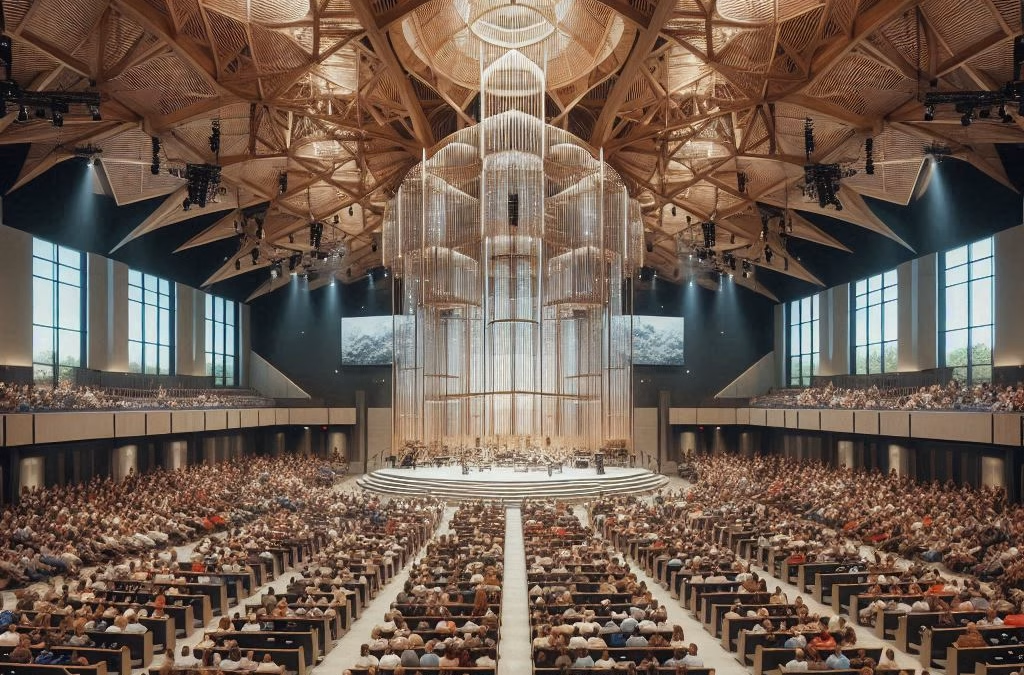The Importance of Regularly Updating a Church or Ministry Website
In today’s digital age, a church or ministry’s website serves as a vital hub for communication, outreach, and community engagement. It’s often the first point of contact for visitors seeking information about your church, its mission, and its activities. As such, keeping the website updated is not just a technical task—it’s a crucial ministry effort. Regular updates to your church’s website ensure that it remains a relevant, reliable, and effective tool for connecting with both your congregation and the broader community. Here’s why regular updates are essential:
1. Accurate and Up-to-Date Information
The primary purpose of a church website is to provide visitors with accurate and current information about your church’s services, events, and ministries. Outdated content, such as old service times, incorrect event details, or inactive ministry links, can lead to confusion and frustration. Regular updates ensure that visitors have access to the most current information, helping them to engage more effectively with your church.
- Weekly Updates: Include the latest sermon, service times, and any upcoming events.
- Event Updates: Ensure that special events, such as holidays or outreach activities, are prominently displayed and updated as details change.
2. Enhanced User Experience
A website that is regularly updated is more likely to offer a positive user experience. Outdated websites can feel stagnant, slow, and difficult to navigate. Regular updates, on the other hand, help keep the site fresh, functional, and user-friendly.
- Navigation Improvements: As new content is added, reorganize the site’s navigation to make it easy for users to find what they’re looking for.
- Mobile Optimization: Regularly test and update your site to ensure it is optimized for mobile devices, as many visitors will access your site from their smartphones.
3. Increased Search Engine Visibility
Search engines like Google prioritize websites that are frequently updated with fresh content. Regularly updating your church’s website can improve its search engine ranking, making it easier for people to find your church when they search online.
- SEO Best Practices: Incorporate relevant keywords into new content to help improve your site’s visibility in search results.
- Content Updates: Regularly post new blog articles, sermon transcripts, or devotionals to keep the site active in the eyes of search engines.
4. Engagement and Interaction
Regularly updated websites encourage visitors to return more frequently, increasing overall engagement. When members and visitors see that the site is active and constantly being updated, they are more likely to interact with it, whether by reading blog posts, signing up for events, or watching sermons online.
- Interactive Features: Add new features like online forms, comment sections, or discussion forums to increase interaction.
- Social Media Integration: Regularly update and synchronize your website with your church’s social media accounts to keep content fresh and encourage engagement.
5. Security and Stability
Regular updates are crucial for maintaining the security and stability of your website. Websites that are not updated are more vulnerable to hacking, malware, and other security threats. By keeping your site’s software, plugins, and security features up-to-date, you protect both your church’s information and your visitors’ data.
- Software Updates: Regularly update your content management system (CMS), plugins, and themes to the latest versions to patch security vulnerabilities.
- Backup Systems: Implement and regularly update your backup systems to ensure that you can quickly recover your site in case of data loss or security breaches.
6. Reflecting Growth and Change
Churches and ministries are dynamic entities, constantly growing and evolving. Your website should reflect that growth and change. Regular updates allow you to showcase new ministries, highlight recent accomplishments, and share testimonies of God’s work within your community.
- Ministry Highlights: Regularly update your site with stories, photos, and videos that reflect the ongoing work of your church.
- Vision and Mission: As your church’s vision and mission evolve, ensure that your website accurately reflects these changes.
7. Building Trust and Credibility
A well-maintained, regularly updated website builds trust and credibility with both current members and potential visitors. It shows that your church is active, organized, and committed to its mission. An outdated website, by contrast, can give the impression that the church is inactive or not keeping up with the times.
- Professional Appearance: Regularly update the design and content of your website to maintain a professional, welcoming appearance.
- Transparency: Use regular updates to communicate openly with your congregation about church finances, leadership, and decision-making processes.
Conclusion
Regularly updating your church or ministry website is not just about keeping up with technology; it’s about enhancing your ministry’s effectiveness in the digital age. By ensuring that your website is current, user-friendly, secure, and reflective of your church’s mission and activities, you create a powerful tool for outreach, communication, and community building. In doing so, your website becomes a living extension of your church’s ministry, reaching people far beyond the physical walls of your building and helping to fulfill your church’s mission in the world.



